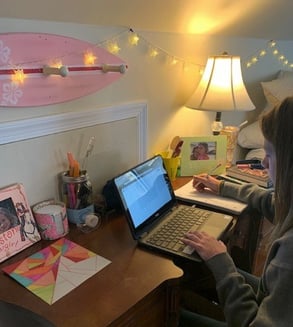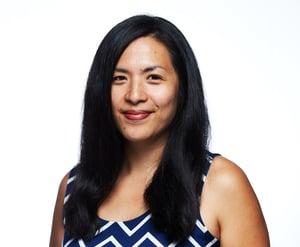One year ago, teachers were in classrooms and parents were not. Now, with virtual or hybrid learning, parents and caregivers are participating in a much more material way with students’ education. The classroom is now the dining room, the bedroom, or some other space at home. This unexpected blending of roles is not simple to navigate. Considering the circumstances of this school year and the reason for all of the adjustments we are making, it may be helpful to have a bank of ways to respond to things that are happening at home from a learning specialist’s perspective. Here are some common situations that you might encounter.
If your student is struggling with an assignment or task:
|
Instead of: |
Try: |
|
Did you read the directions? |
Can you explain the assignment to me? |
|
Keep trying/keep working on it. |
Take a break and work on something else. You can go back to it later. |
|
Why didn’t you ask your teacher for help? |
Is there a teacher who has office hours now who can help? OR Can you rewatch the class recording where the teacher explains it? |
When a student is experiencing difficulty, we want to do whatever we can to foster their endurance for hard work and their desire to persist, and to empower them to seek a productive path. Asking the student to explain the assignment forces them to engage in the learning cycle by using metacognition to teach another person about the task. This exercise either helps the student to plan the next step or demonstrates a need to revisit prior learning or materials.
Parents and caregivers know their children best: some need to shift out of a mental task in order to have fresh eyes and attitude. Some need to push on and persist in a moment of frustration. Taking a break is acceptable when it is structured and limited. Asking for help is always ok — but it might not always be available. One of the benefits of distance or remote learning is access to class recordings even if the student was present in class.
If your child recently took a test or assessment:
|
Instead of: |
Try: |
|
What is your grade in that class/what grade did you get? |
Did you feel prepared? OR Did you do as well as you expected? |
|
Was it easy or hard? |
What went well for you? OR What took you more/less time than expected? OR Can you think of anything you want to do differently to prepare next time? |
|
When is your next test/quiz/assessment? |
What are you learning next? |
The general tone of these questions and responses moves away from a focus on grades or outcomes and highlights the process of learning and assessing. When we, as adults, focus more on the process than the product, our students learn to care more about the process as well. Students who practice inquiry in their high school years will be better prepared for independent inquiry in their college years and beyond. Asking questions about what students thought and felt about their performance can help guide them in refining their own study habits and gives them ownership in their efforts. Feedback from these types of questions can also be valuable to advisors and teachers as students plan for course selection and college.
Following these suggestions won’t change the fact that school isn’t what it used to be. Strengthening the home-school partnership is always beneficial for students, and having adults at home mirror the messages we are teaching students at school helps to transfer academic learning to life skills education. Students will still have their teachers from school, but there have always been teachers at home.




